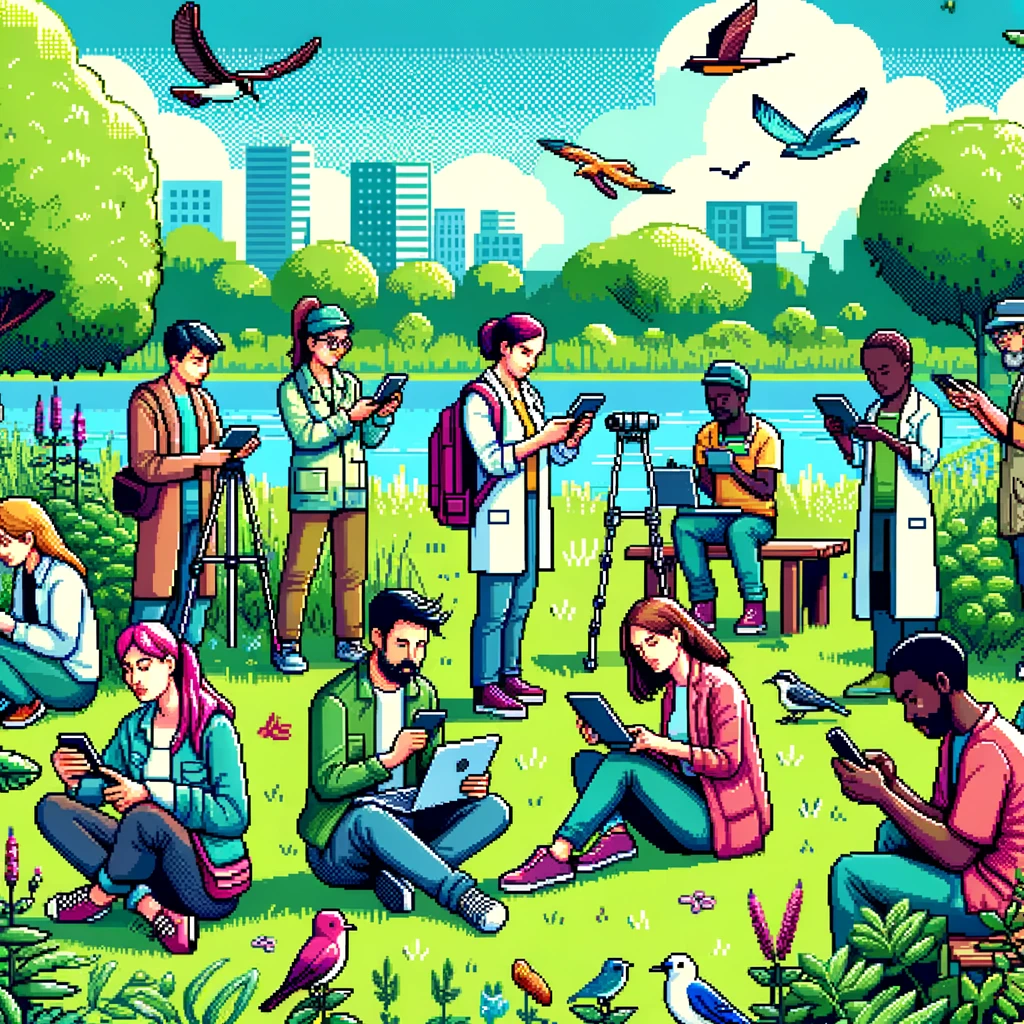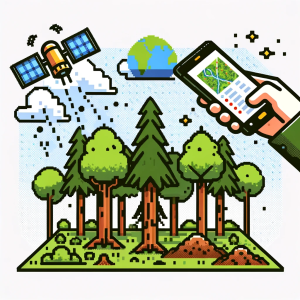
The Power of Citizen Science
In a world where science often seems restricted to laboratories and elite institutions, citizen science emerges as a vibrant frontier redefining who gets to participate in the process of discovery. A study published in PLOS ONE has cast a spotlight on this burgeoning field, revealing the extensive scale and unique dynamics of global citizen science projects, particularly those conducted online.
What is Citizen Science?
Citizen science involves public volunteers in scientific research, allowing them to make significant contributions without necessarily having a formal scientific background. This can range from bird watchers tracking migration patterns to gamers solving complex protein structures online. The essence of citizen science is its ability to bridge the gap between everyday citizens and the often inaccessible world of formal research.
The Scale of Participation
The study analyzes data from over 14 million participants involved in online citizen science projects, providing an unprecedented look at who these citizen scientists are and how their contributions are shaping research. This large-scale analysis highlights a shift in how scientific research can be conducted, leveraging the collective power of millions globally.
Who Participates?
Interestingly, the study reveals that while citizen science is often touted as a tool for democratizing science, the reality is somewhat different. Most participants tend to be men with a background in science or technology, indicating a gender and professional skew that does not yet reflect the broader population. However, projects that involve nature sensing (like observing wildlife) show more balanced participation, suggesting that the type of science can influence who gets involved.
Participation Dynamics
Another striking finding is the variability in participation over time and across different types of projects. While some areas like distributed computing (where individuals lend unused computing power to research projects) have seen a plateau in growth, others, particularly those involving environmental observations, have experienced exponential increases in participant numbers.
The Impact of Citizen Science
Citizen science is not just about collecting more data; it’s about enhancing public understanding of science and enriching the scientific process with diverse perspectives. The study underscores how these projects contribute significantly to scientific research, with millions of tasks completed by volunteers who bring their unique insights and local knowledge to the table.
Challenges and Limitations
Despite its growth, citizen science faces significant challenges. The study points out that the demographic imbalances and the concentration of certain types of participation could limit the broader impact of these endeavors. Moreover, the reliance on volunteers who are already somewhat scientifically literate may not fully democratize the scientific process as hoped.
Future Directions
As we look to the future, citizen science holds immense potential to expand the reach and scope of scientific inquiry. However, for it to be truly transformative, efforts need to be made to involve a more diverse range of participants. Projects must also leverage new technologies and platforms to facilitate even greater public involvement and engagement.
Conclusion
Citizen science is redefining what it means to participate in science. As this study shows, millions around the world are not just passive recipients of scientific knowledge but active contributors to the scientific endeavor. While challenges remain, the future of citizen science is bright, with the potential to further democratize science and increase global engagement with scientific research.
Engage with Us!
Did this peek into the world of citizen science spark your interest? Have you ever participated in a citizen science project, or do you have an idea for one? Share your thoughts and experiences in the comments below—we’d love to hear from you!
Post-Script
Okay, so I’m a community psychologist by training and trade, and so much of my work relies on community-based participatory action. While reading this article, I couldn’t help but come across the parallels to my own work.
his extensive research provides a critical reflection on the engagement dynamics, demographic inclusivity, and evolving challenges within participatory frameworks, all of which are crucial for enhancing the effectiveness and reach of CBPR projects.
Broadening Participant Diversity
One of the key findings of the study is the demographic skew toward male participants and those already equipped with a background in science or technology. This insight is particularly relevant for social scientists who often strive to ensure that their research designs and projects are inclusive and representative of diverse populations. The underrepresentation of certain groups in citizen science suggests similar patterns may exist in social science projects, potentially skewing research outcomes and limiting the applicability of findings. For practitioners of CBPR, this underscores the necessity of developing strategies to actively recruit and retain a more diverse range of participants, particularly from underrepresented groups, to truly democratize research participation.
Leveraging Technology for Engagement
The significant role of online platforms in facilitating citizen science activities highlights the potential of digital tools to enhance participant engagement in CBPR. The study details how different types of projects attract varying levels of public involvement, with technology playing a central role. In the realm of social sciences, leveraging technology can similarly transform engagement strategies. By employing online surveys, virtual focus groups, and digital data collection tools, social scientists can reach a wider audience, overcome geographical barriers, and collect data more efficiently while maintaining rigorous ethical standards.
Assessing the Impact of Participation
The analysis also delves into the impact of citizen science on scientific literacy and democratization of science, themes that resonate deeply with the goals of CBPR. In social sciences, the participatory approach is not only about collecting data but also about empowering participants and fostering a deeper understanding of societal issues. The findings from the citizen science study invite PAR practitioners to critically evaluate the impact of their work on participants’ understanding of social issues and their capacity for civic engagement. Furthermore, it challenges them to consider how their projects can contribute more broadly to social change and public policy.
Addressing Challenges in Participation
Despite the growth of citizen science, the study does not shy away from discussing its limitations, such as participation inequality and the sustainability of engagement over time. These challenges are similarly pertinent to CBPR, where ensuring sustained and meaningful involvement can often be difficult. The insights from the study can thus help CBPR practitioners to anticipate and mitigate these challenges through adaptive research designs that maintain participant interest and involvement over the long term.
Moving Forward
For those involved in participatory action research within the social sciences, this study serves as a valuable resource for reflecting on and enhancing their own practices. It not only reinforces the importance of inclusivity and the potential of technology in research but also critically examines the challenges of participant engagement that can inform future strategies. As PAR continues to evolve, integrating these insights will be crucial in making participatory research more effective and impactful.
Unlock the Secrets of Science:
Get ready to unlock the secrets of science with ‘This Week in Science’! Our newsletter, designed specifically for educators and science aficionados, delivers a weekly digest of revolutionary research, innovative discoveries, and motivational tales from the scientific frontier. Subscribing is your key to a treasure trove of insights that can revolutionize your approach to teaching and learning science. Sign up today at no cost and start a journey that deepens your understanding and passion for science.
About the Author
Jon Scaccia, with a Ph.D. in clinical-community psychology and a research fellowship at the US Department of Health and Human Services with expertise in public health systems and quality programs. He specializes in implementing innovative, data-informed strategies to enhance community health and development. Jon helped develop the R=MC² readiness model, which aids organizations in effectively navigating change.



